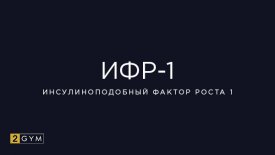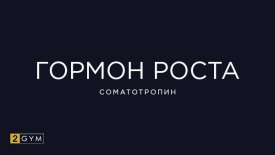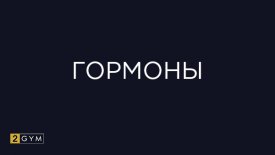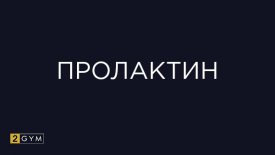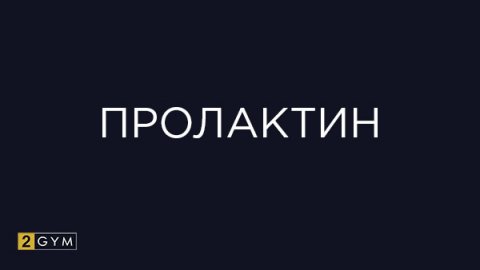Biological Role
Cortisol, like other glucocorticoid hormones, directly or indirectly regulates almost all physiological and biochemical processes in the body. Its main effect is the regulation of carbohydrate metabolism.
Cortisol stimulates glucose synthesis in the liver, decreases membrane permeability to glucose, inhibits glucose utilization in cells of other organs, and stimulates the release of amino acids from peripheral tissues (predominantly muscle and lymphoid), leading to protein catabolism.
It stimulates lipid synthesis in the liver and lipid breakdown in adipose tissue. Cortisol's action on carbohydrate and lipid metabolism is balanced by insulin, which has the opposite effect and regulates normal blood glucose levels.
Cortisol stimulates the synthesis of proteins and nucleic acids in the liver and inhibits the synthesis of proteins and nucleic acids in muscles, lymphoid and adipose tissue, and bones.
It inhibits calcium absorption in the intestines, promotes the release of calcium from bone tissue, and enhances its excretion in urine.
Cortisol, like other glucocorticoids, increases the sensitivity of adrenoceptors to catecholamines, enhances the pressor effect of angiotensin II, maintains normal arteriole tone and myocardial contractility, and inhibits capillary permeability.
Stabilizes lysosomal membranes, suppresses hyaluronidase synthesis, and reduces lymphokine synthesis.
The hormone has an antiproliferative effect, caused by reducing the migration of monocytes to the site of inflammation and inhibiting the proliferation of fibroblasts.
It inhibits collagenase activity, thereby preventing the destruction of bone tissue and cartilage in rheumatoid arthritis.
Has anti-allergic effects, due to reducing the number of basophils, as well as reducing the production and secretion of immediate allergic reaction mediators.
Causes involution of lymphoid tissue and the development of lymphopenia, leading to immunosuppression.
Cortisol concentration in the blood significantly increases in stressful situations—during injuries, heavy physical exertion, fasting, emotional stress, severe infectious diseases, and other shock states for the body. Hence, cortisol is often called the "stress hormone."
Cortisol Secretion Disorders
With an increase in cortisol secretion due to an adrenal cortex tumor, a pituitary tumor, or disruption in the production of corticoliberin in the hypothalamus, Cushing's disease occurs.
Characteristic symptoms of this disease include hyperglycemia, osteoporosis, thinning skin, reduced muscle mass, increased body mass, poor wound healing, and suppressed immunity.
With a decrease in cortisol secretion by the cells of the adrenal cortex's fascicular zone, Addison's disease occurs, characterized by hypoglycemia, reduced tissue glycogen content, decreased resistance of the body to various damaging factors and emotional stress, accompanied by the appearance of bronze pigmentation of the skin and mucous membranes.
Cortisol and Body Composition
Excessive cortisol secretion in stressful situations destroys muscle tissue and can also lead to an increase in visceral fat.
Medical Use
Cortisol is used in medicine under the international name Hydrocortisone in the form of tablets, ampoules, suspension for parenteral use, and ointment.
It is used for acute allergic reactions, asthmatic status, hypotension and collapse, hemorrhagic stroke, acute adrenal cortex insufficiency, acute liver failure, poisoning with acids, organofluorine compounds, chlorine, chemiconium. As replacement therapy, the hormone is used in Addison's disease.
For intra-articular use, the drug is indicated for reactive synovitis, rheumatoid arthritis, post-traumatic osteoarthritis, gouty arthritis, bursitis, tendovaginitis.
Locally, in the form of a topical ointment, it is used for various inflammatory and allergic skin diseases of non-microbial etiology.
Intradermally, the drug is used for keloid scars, infiltrative and inflammatory skin lesions, psoriatic plaques, neurodermatitis, discoid lupus erythematosus, diabetic lipoid necrobiosis, alopecia areata, and cystic tumors of tendons and aponeuroses.
In the form of an eye ointment, hydrocortisone is used for allergic conjunctivitis, blepharitis, keratitis, after chemical and thermal burns to restore corneal transparency, iritis, uveitis, chorioiditis, sympathetic ophthalmia, and also after ophthalmological surgeries.
Pharmacodynamics
After passing through the cell membrane, cortisol binds to a specific steroid receptor in the cell cytoplasm. The activated complex then penetrates into the nucleus of the cell, binds to DNA, and stimulates the synthesis of RNA, resulting in the synthesis of various regulatory proteins on ribosomes.
One of the most important compounds synthesized with the help of cortisol is lipocortin, which inhibits the enzyme phospholipase A2, thereby suppressing the production of prostaglandins and leukotrienes involved in the development of inflammatory reactions.
The maximum effect of cortisol is achieved several hours after reaching its maximum concentration in the blood. The enzyme 11-beta-hydroxysteroid dehydrogenase converts cortisol to cortisone in the kidneys, reducing its activity.
